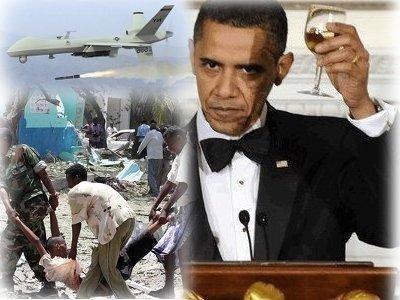Cuba, Iran and American Lies

U.S. policies that were once thought to be written in stone have crumbled, over the years, in the face of the intended victims’ resistance. Vietnam triumphed, despite three million dead. Cuba has held out against empire for more than half a century. Iran remains a power in its part of the world. And “the Syrians proved that resistance is not futile.”
How does one know when American presidents aren’t telling the truth about foreign policy? The answer is simple. We know they are lying whenever their lips are moving. There is a long history of claims made about America’s relations with other nations that have been revealed as cynical, bald faced lies. When circumstances change for the political and ruling classes or if resistance is effective enough, a narrative repeated over many years can change very quickly.
Throughout the 1950s, 1960s, and into the 1970s, we were told that a communist victory in Vietnam would be an unthinkable catastrophe that should never be allowed to happen. After decades of terror and millions of lives lost in Vietnam, Laos and Cambodia, the United States was finally forced to retreat. Not only did the Earth continue to turn, but business quite literally went on as usual. Now the words “made in Vietnam” are visible to any American purchasing clothing or athletic footwear. So much for the dangers of a communist state.
That dynamic of opportune propaganda shows no signs of letting up. For more than fifty years Americans were told that Cuba must be attacked, blockaded, sanctioned and prevented from engaging with other states. When the Cuban government built an airport on the tiny Caribbean island of Grenada in 1983, U.S. troops invaded, overthrew the elected Grenadian government and forcibly ended that alliance. Thirty years later there is rarely any discussion about Grenada. It certainly is no longer claimed to be a vital national interest.
Now after five decades of American declared enmity, president Obama says that Cuba and the United States ought to resume diplomatic relations. The Cuban Five political prisoners were suddenly freed, travel restrictions were loosened and Obama met with Raul Castro at the Summit of the Americas conference. Previously the United States prevented Cuba from even attending this meeting. The United States labeled Cuba a “state supporter of terrorism” in 1982 but is reportedly on the verge of lifting this designation which mandates the imposition of economic sanctions.
Cuba is not alone in getting the 180 degree turn from Barack Obama. Iran is also being treated quite differently of late. That nation’s experience with the United States is a litany of aggressions spanning many years. In 1953 an American coup overthrew an Iranian government and installed an absolute monarch. A subsequent revolution and the taking of American hostages in 1979 began more than thirty years of attacks on Iranian sovereignty.
In the 1980s the United States supported Saddam Hussein in a proxy war against Iran. More than one million people died in the decade long conflict but Hussein himself went from friend to enemy and suffered two American invasions of his country. In the end all he got out of his onetime alliance was a trip to the gallows.
Now after a coup, a United States instigated war, and years of sanctions, Iran is on its way to being dealt with as the influential regional power that it is. Barack Obama has gone from repeating all of the neocon lies about Iran to fighting some members of his own party in order to secure an agreement on nuclear capability.
The propaganda hasn’t ended altogether however. Every major American corporate media outlet falsely claimed that only the Iranians presented obstacles to the agreement. In fact, Iran has been the more responsible party, willing to make concessions even as it demanded its rights. Barack Obama and all of his predecessors might have changed relations between the two nations at any time if they had they wanted to.
Anyone who pays attention to these changes can end up with a severe case of whiplash and dizzying confusion. But these seemingly inexplicable policy maneuvers come about because American power has its limits. Iran’s ally, Syria, has held on after four years of a NATO instigated conflict. In league with the gulf monarchs, western nations have been unable to defeat or dislodge Syrian president Assad. Had they been able to do so, they would have resumed the effort to inflict regime change on Iran. Instead the Syrians proved that resistance is not futile.
Likewise, American nations took Obama to task over the exclusion of Cuba from the Summit of the Americas conference. But they didn’t just complain among themselves. They decided to do a little excluding of their own. Under the leadership of the late Hugo Chavez, the Community of Latin American and Caribbean states, CELAC, was formed in 2011 and excluded the United States and Canada from its proceedings. That thumb in America’s eye gave Obama an incentive to ease the fifty year long attack on Cuba and prevent further embarrassment for himself and his country.
It would all be funny if it weren’t so dangerous. Pariahs are suddenly given seats at the table if the right people decide that circumstances have changed enough to warrant an about face. Today’s state sponsor of terror may be tomorrow’s friend. The human rights violations are forgotten if the violator is deemed important.
It is good advice not to believe everything we read. But in American foreign policy that expression doesn’t go far enough. We should not believe anything our government feeds to the corporate media. They lie when their lips are moving.
Margaret Kimberley‘s Freedom Rider column appears weekly in BAR, and is widely reprinted elsewhere. She maintains a frequently updated blog as well as athttp://freedomrider.blogspot.com. Ms. Kimberley lives in New York City, and can be reached via e-Mail at Margaret.Kimberley(at)BlackAgendaReport.com.

